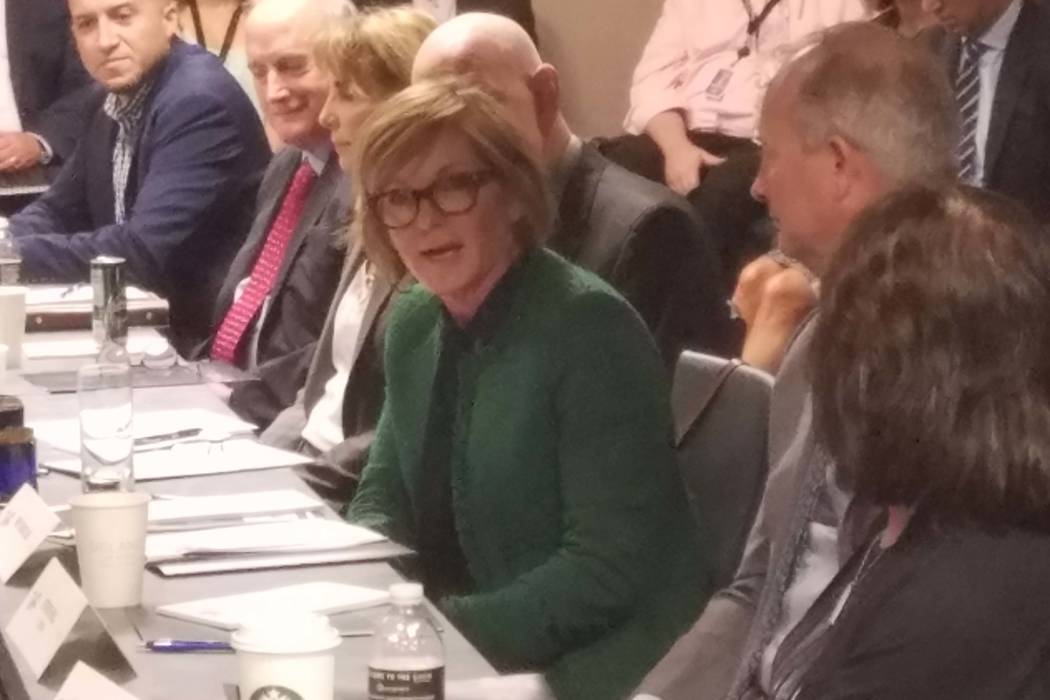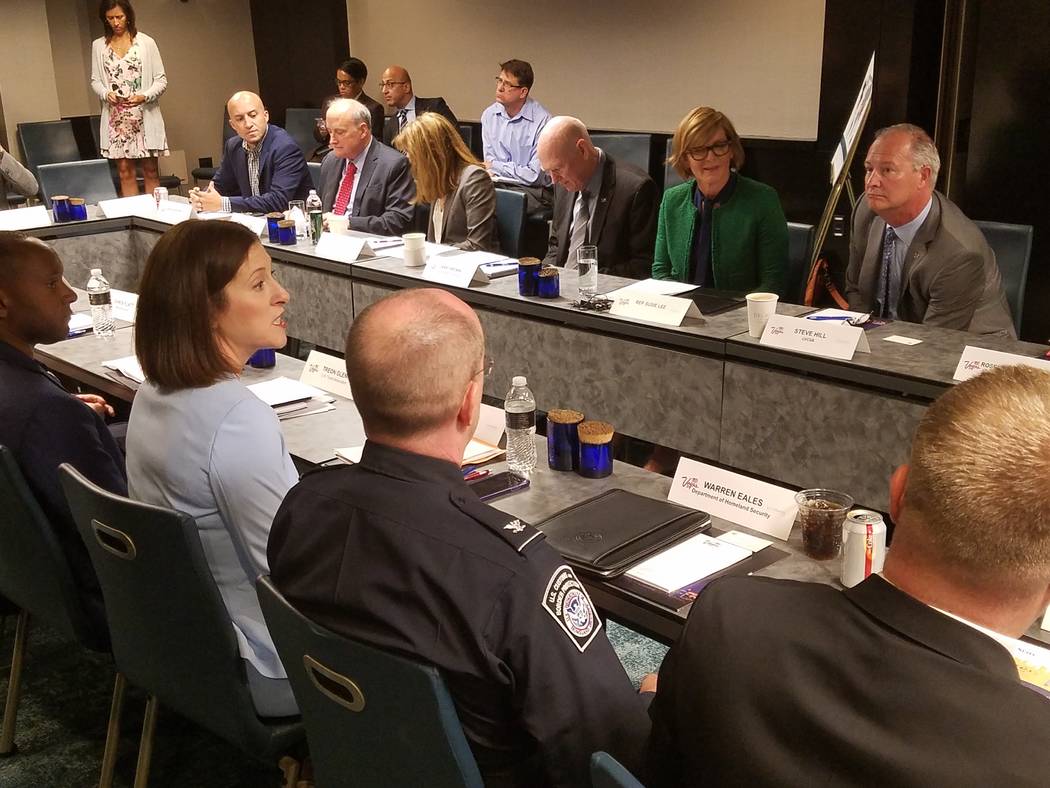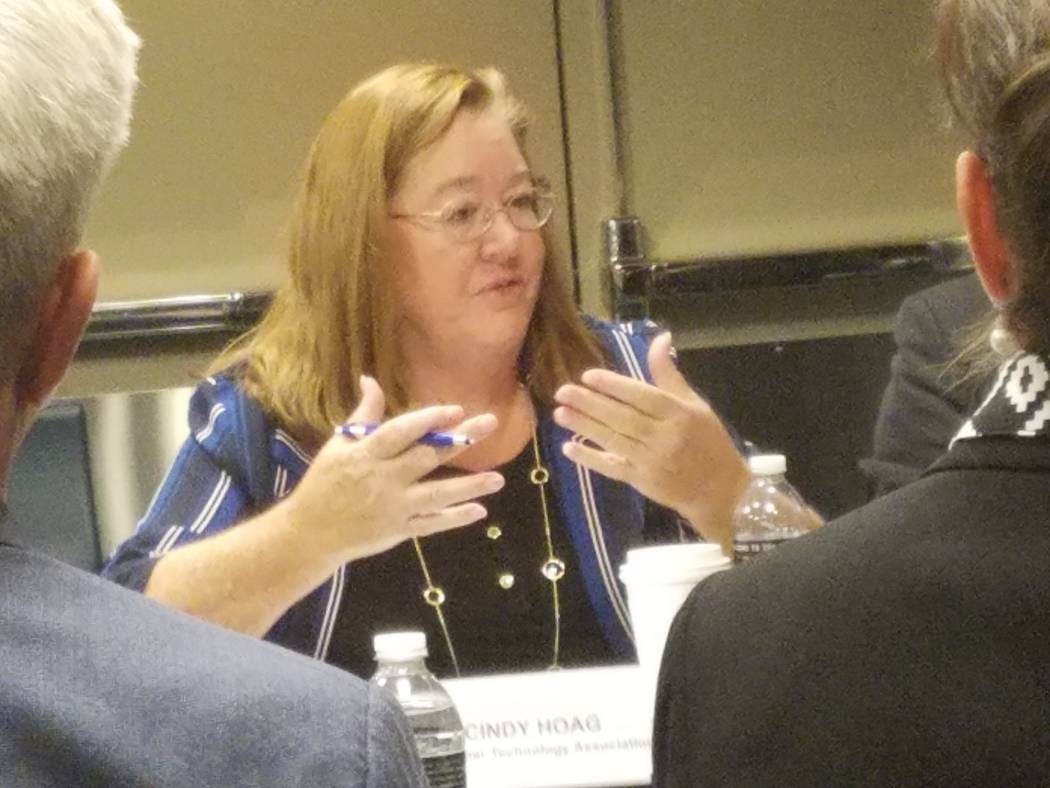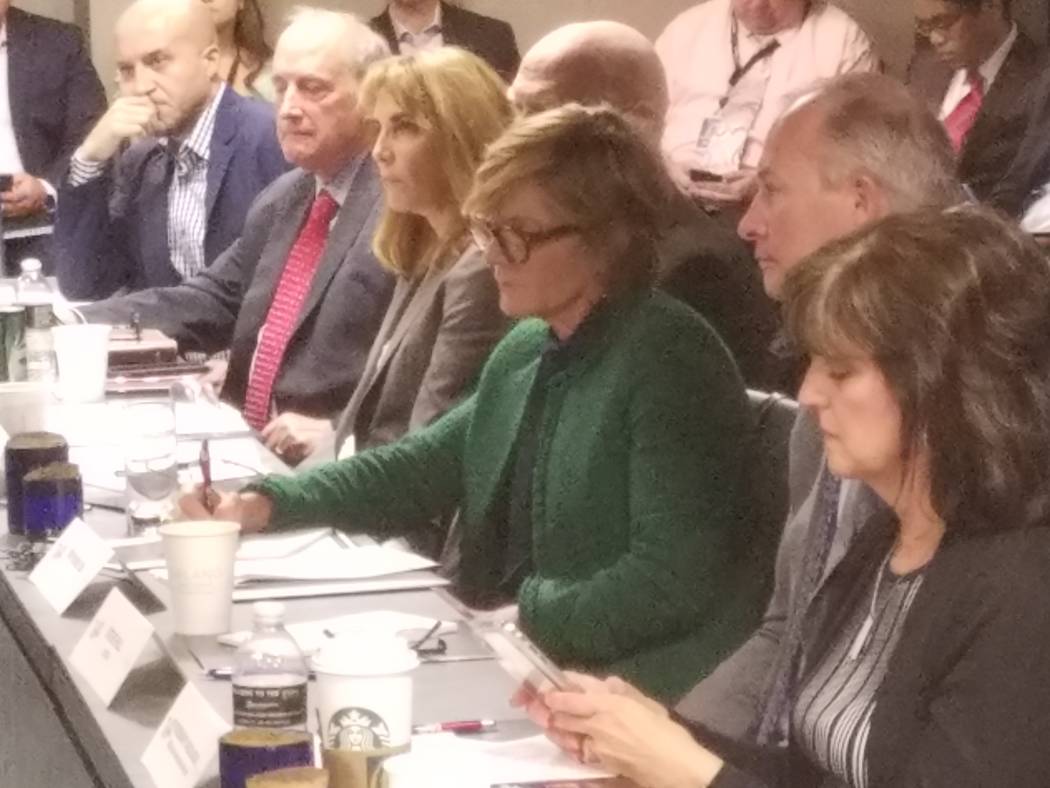Susie Lee says legislation unlikely for resort fee controversy
Resort fees, the much-maligned charges many hotels tack on to tourists’ bills, are a market-driven issue Rep. Susie Lee doesn’t expect to be reviewed by legislators.
Lee, D-Nev., addressed 30 representatives of the tourism industry on a variety of issues in a travel roundtable Wednesday at Delano Las Vegas.
“If people are so unhappy about the resort fees, they’ll quit paying them and the operators will have to deal with those ramifications,” Lee said in response to a question after the forum about whether lawmakers would address resort fees as a consumer protection issue.
Last month, two attorneys general filed lawsuits against hotel brands for their use of resort fees. On July 9, the attorney general for the District of Columbia filed a lawsuit against Maryland-based Marriott International Inc., accusing the company of deceiving customers by hiding a portion of its daily rates through resort fees. On July 23, Nebraska attorney general Doug Peterson filed a lawsuit against Virginia-based Hilton Hotels Corp, accusing the company of hiding the “true price” of hotel rooms through resort fees in an attempt to increase profits.
Former Sen. Claire McCaskill, D-Mo., introduced a bill to end resort fees on Feb. 25, 2016, well before Lee took office this year. Lee said she wants to further research the issue, but at first glance, she said it’s a matter that should be market-driven. The bill was never taken up by the full Senate.
Lee took comments on a number of tourism issues in the “Travel Talks Roundtable,” sponsored by the Las Vegas Convention and Visitors Authority and the U.S. Travel Association, a Washington D.C.-based organization that lobbies on travel and tourism issues.
Getting behind the census
Lee encouraged tourism representatives to get behind an accurate U.S. census count, noting that Nevada getting its full share of revenue is particularly important for a state so reliant on tourism.
“I think that we continue to get short-shrifted in terms of federal money because of our population and not our visitation,” Lee said. “We’re under unique stress because of the number of visitors coming in and out of the state every year. A lot of states have tourism, but tourism to our state it’s so incredibly vital to our economic well-being.”
Lee also said she’d join with others in the congressional delegation fighting the opening of Yucca Mountain.
“I always bring it back to it’s not a matter of if but a matter of when there will be an accident with the transportation of nuclear waste,” she said. “Imagine if that happens on the railway behind the Strip or along (Interstate) 15 or one of our corridors and you’re a convention planner sitting in Nebraska and you have a choice of do I take my convention business to Vegas or do I take it to Orlando or do I take it to Chicago. With a memory of an accident such as that fresh in your mind, we’re going to be losing out. As we all know, tourism is so vital to our economy and it’s not just the direct impact, it’s the indirect impact in our state and on our state budget.”
Other issues that surfaced in the forum:
■ The city’s transformation to a hub for professional sports. “We really believe that Las Vegas can be the epicenter of sports,” said Desiree Reed-Francois, UNLV’s athletic director. “We already have UFC and the (Las Vegas Motor) Speedway and being able to share the stadium with the Raiders, I’m sure the possibilities are endless, not only for the tourism dollars, but selfishly for some of our athletes to play a major championship in their backyard is special.”
— Live entertainment as a tourism driver. Participants noted that six out of 10 visitors to Las Vegas attend a live performance or sports event. The group expects that percentage to climb in the years ahead with new venues, including Allegiant Stadium, due to open next year.
■ Being ready for multiple events at one time. Several participants applauded Las Vegas for adding hotel rooms, convention facilities and other amenities. Mark Shearer, senior vice president and chief financial officer of the Raiders, noted that Las Vegas must be ready for the eventuality of the Raiders playing a postseason playoff game at home at the same time CES is in town.
■ The need for a national passenger travel plan. LVCVA President and CEO Steve Hill participated in an advisory group on travel and tourism that recommended development of a national plan. He noted that a national freight plan exists, but nothing for passenger traffic.
— Support for a bipartisan infrastructure bill. Lee said it’s imperative for lawmakers to approve infrastructure financing to support additional resources for weekend-clogged I-15, construction of Interstate 11 to Phoenix and for technology in all forms of transportation.
— More resources for the Transportation Security Administration. Clark County Aviation Director Rosemary Vassiliadis and Warren Eales, port director for U.S. Customs and Border Protection in Las Vegas, said TSA resources have gotten better at McCarran International Airport because Las Vegas has been identified as a top origination-and-destination airport with a high percentage of passengers starting or ending their trips here instead of changing planes for another destination.
Contact Richard N. Velotta at rvelotta@reviewjournal.com or 702-477-3893. Follow @RickVelotta on Twitter.
Las Vegas tourism by the numbers
— 48. Percentage of travelers to Las Vegas who arrive by plane.
— 20. Percentage of Las Vegas visitors who arrive from a foreign country.
— 157. Number of nonstop markets to and from Las Vegas, 36 international and 121 domestic.
— 36. Number of airlines serving McCarran International Airport, 22 international and 14 domestic.
— 150,000. Approximate number of hotel rooms in Southern Nevada.
— 8. Average percentage increase of convention attendance when a show rotates to Las Vegas.
— 6.5 million. Number of Las Vegas conventioneers in 2018.






















